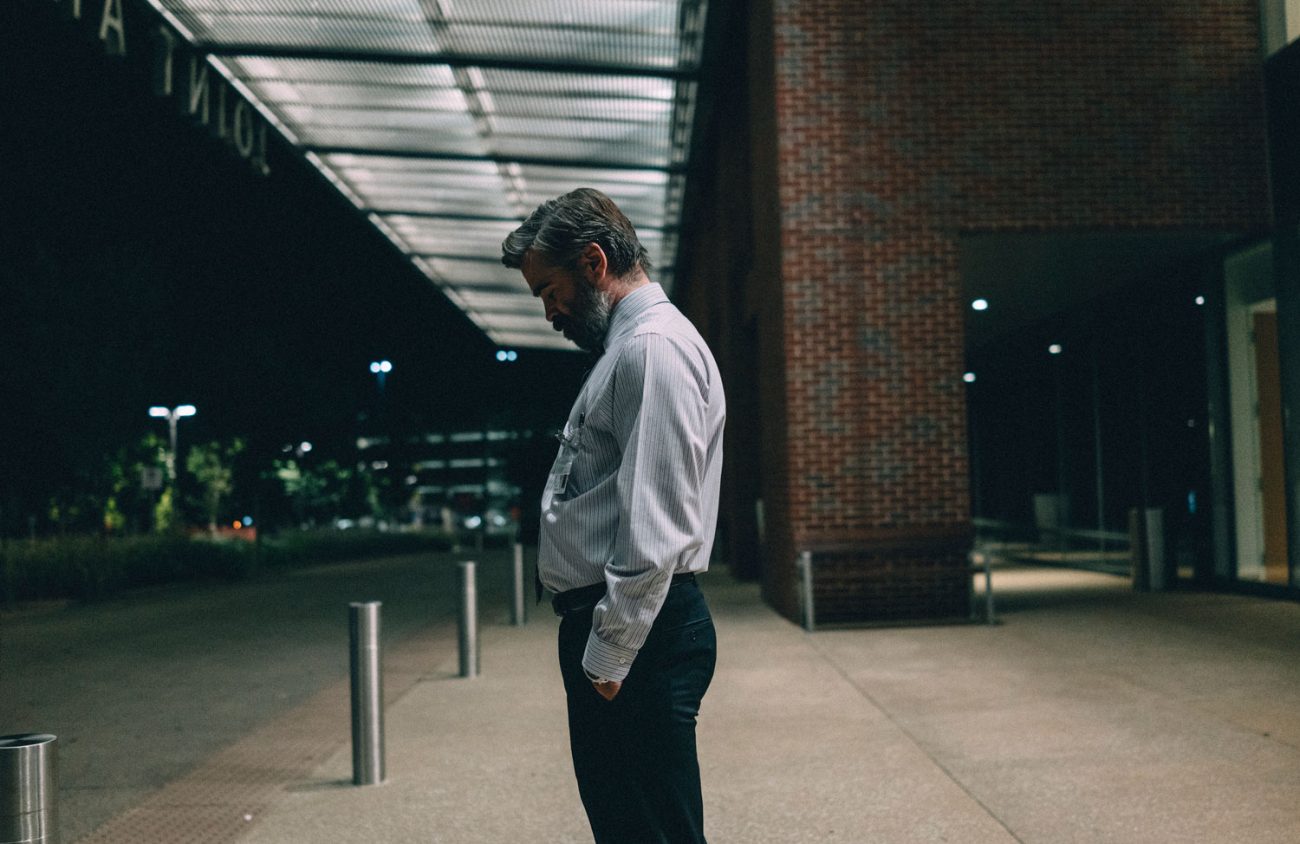Take just about any film — Casablanca perhaps, or Fast Times at Ridgemont High — utterly drain it of emotion and affect, and you’d end up with something that feels a lot like a film by Yorgos Lanthimos.
In no way is this meant to diminish Lanthimos’ obvious brilliance; in fact, it redounds to his credit that, as with heavies like Kubrick and Lang, the mannered formalism of his style is becoming so identifiable, so chillingly familiar. You could parody the hell out of Lanthimos.
But then again, to parody a satirical bent so dark might prove painfully redundant and distinctly unfunny. In The Lobster, one of 2015’s best movies, Lanthimos offered a fantastic vision of a pinched and lonely world where individuals incapable of forging romantic connections are turned into animals (or, maybe, exterminated). In that film, people don’t really connect; they interface, with a flattened, abbreviated quality that reveals the absurdity underlying any program of social engineering.
If Orwell and Huxley presented the future as a chilly dystopian nightmare imposed from without by some monumental institution of control, Lanthimos would drive that nightmare inward, to the point where human agency, the urging of our passions, has been all but extinguished. Control has been priggishly internalized, and people are nearly indistinguishable from the inert commodities that surround them.
On screen, the results of this terse emotional bankruptcy are paradoxically thrilling, like watching a puppet-play of your own life. In The Lobster, this registered as a very dark brand of dark comedy — a bloodless autopsy of desire sanitized of its inherent chaos. The lobster may be protected by a hard shell, but does it experience love?
In Lanthimos’ latest, The Killing of a Sacred Deer, the director at once extends his reach and brings it into sharper focus, elevating an intimate family (psycho)drama to the level of mythos. A successful surgeon, Steven (Colin Farrell), maintains a strange friendship with a wayward teen, Martin (the excellent Barry Keoghan), a boy whose attachment to the doctor is stiffly polite but insistent and more than a bit creepy. With Lanthimos, a master of affectless suspense, there is a fine line between attachment and stalking, but eventually Martin crosses it.
Martin — whose father, it turns out, died on Steven’s operating table — warns the surgeon that, one by one, his son (Sunny Suljic), his daughter (Raffey Cassidy) and his wife (Nicole Kidman) will be stricken with paralysis before they bleed from the eyes and then die, and that the only way to forestall this rapid fate is to kill one member of his family.
A stark and oddly detached sense of divine justice — a mash-up of Greek mythology and the Old Testament story of Isaac and Abraham — pervades this rather strange and gloomy film, which is secular in look but cosmic to the core. Steven, a coward at heart, confronts the illogic of Martin’s curse with an ever more aggressive logic that falls apart at every turn, until he is forced, at last, to act. And that’s when it starts to get really messy.
The Killing of a Sacred Deer is challenging to the point of total unease. As a friend of mine said afterward: “Well, that was different … I think I need a bath now.” It is meticulously made, from the taut pacing to the gorgeously angular cinematography to the veteran acting (Kidman is especially fine). Many people, I fear, will find it very unpleasant to sit through.
Then again, there’s nothing particularly pleasant about the ancient myths Lanthimos injects into modern life. The question is: Have we lost our stomachs for those myths, or for life itself — or both? (Broadway Metro)
